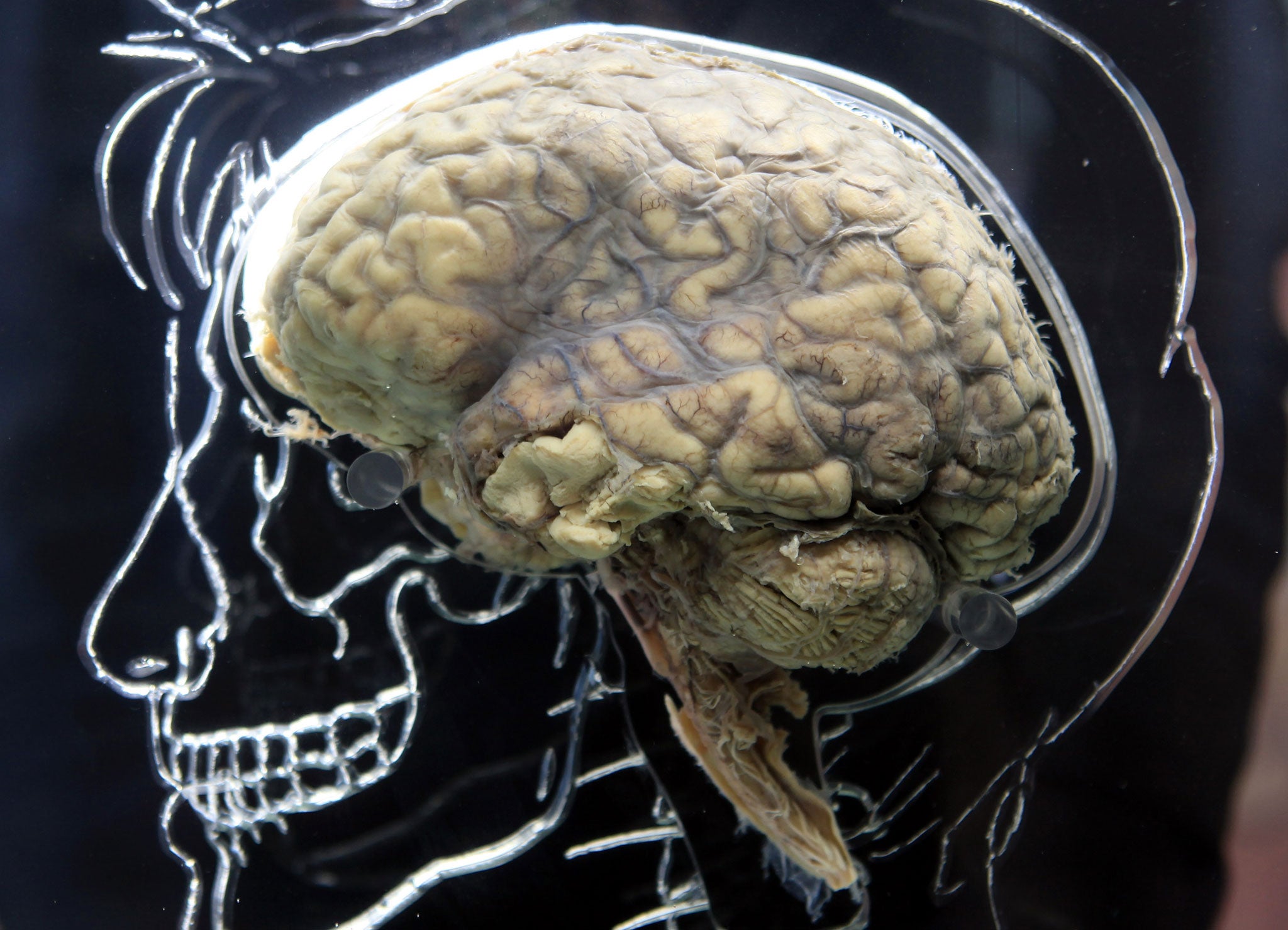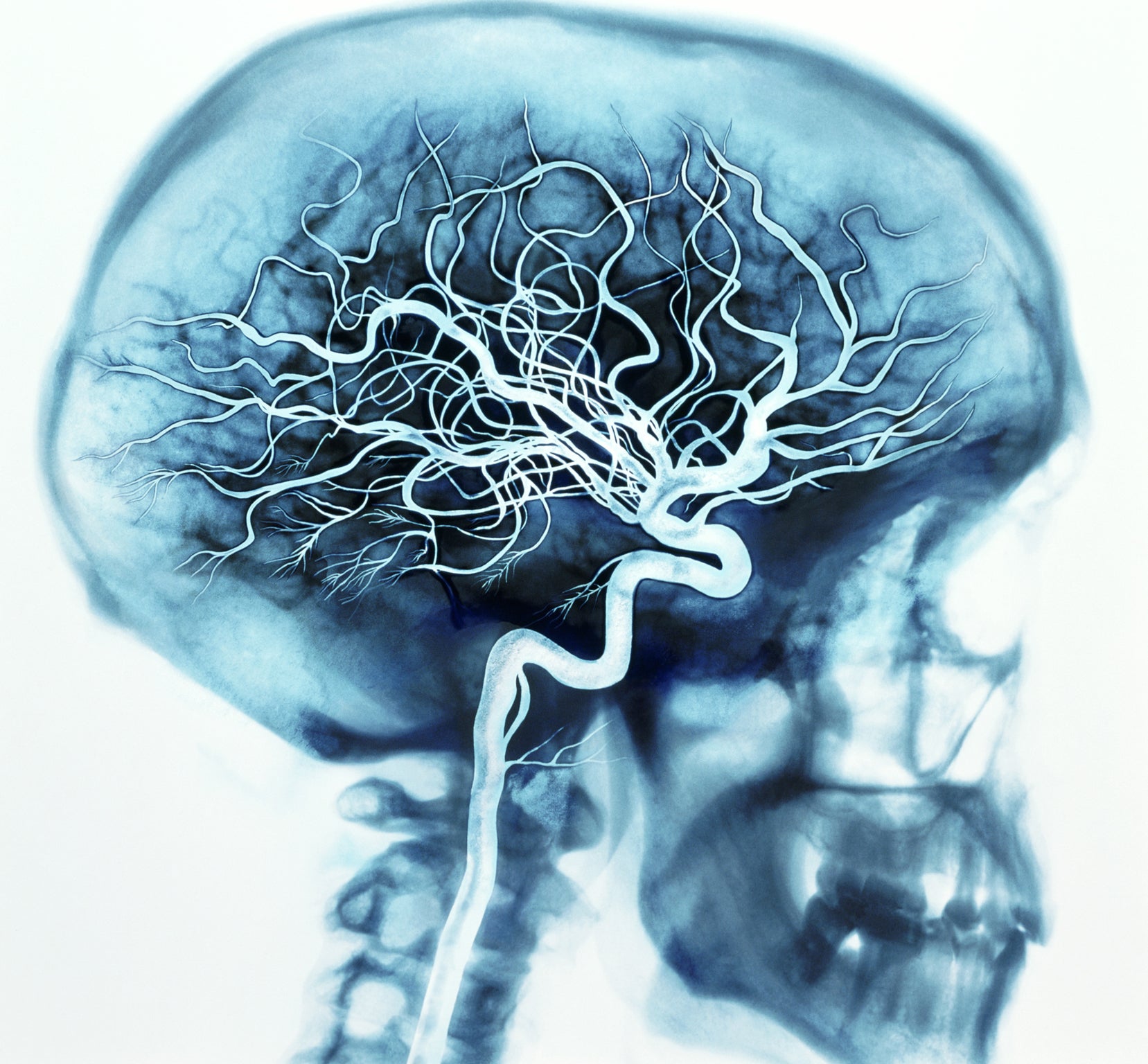You say lateral frontal pole, I say that little devil/angel that whispers in my ear
Without recognising it, Oxford scientists appear to have located the consience


Your support helps us to tell the story
From reproductive rights to climate change to Big Tech, The Independent is on the ground when the story is developing. Whether it's investigating the financials of Elon Musk's pro-Trump PAC or producing our latest documentary, 'The A Word', which shines a light on the American women fighting for reproductive rights, we know how important it is to parse out the facts from the messaging.
At such a critical moment in US history, we need reporters on the ground. Your donation allows us to keep sending journalists to speak to both sides of the story.
The Independent is trusted by Americans across the entire political spectrum. And unlike many other quality news outlets, we choose not to lock Americans out of our reporting and analysis with paywalls. We believe quality journalism should be available to everyone, paid for by those who can afford it.
Your support makes all the difference.Scientists at Oxford University have made a startling discovery: they’ve found a region of the brain that makes you wonder if you’ve done something wrong, and whether you’d have been well advised to do something better.
There are several things that you should know about this region, which is inside your head, and the head of the lady sitting beside you on the Tube, and the heads of David Cameron and Lady Gaga and Rouge Dragon Pursuivant of the Royal College of Heralds. One, it's called the lateral frontal pole. Two, it's unique to humans - they ran tests on monkeys in the course of the research at Oxford and, nope, they don't have it. Three, it's the size of "a large Brussels sprout". And four, it's a leap beyond current scientific knowledge into realms that can only be described as spooky.
We already knew (he says, hastily consulting his copy of Popular Science for Dimwits) that the brain can monitor decisions it has made. It tells itself: "I have chosen to follow this track in the forest and it's turning out to be a sunlit pathway/sodden jungle", but it registers no more nuanced reaction than that. What this newly discovered region does, however, is to identify other paths that it might have been better to take, and register what a dolt the brain feels for getting it wrong.
"This region monitors how good the choices are that we don't take," said Professor Matthew Rushworth, who led the research, "How green the grass is on the other side."
What the professor doesn't mention is the emotional trauma that the brain must register for having made a crap decision. Like the split-second after you've tweeted what you meant to be a direct message to a friend, voicing the view that a recent guest on your TV show was a crashing bore - only to realise, too late, that you've informed your entire Twitter following about the lady's snoringness. Or the moment you sail past your turn off on the M3, horribly aware that it's 40 miles to the next exit and you're almost out of petrol. Or that creeping sensation when you realise that you should have chosen some other song than "YMCA" to hum while dealing with passport control at Sochi airport.
The lateral frontal pole, in short, is like a spouse who is quick to inform you that you've blundered and bungled it when it would have been so easy to get it right. It's the kindly-but-firm voice of authority that tells you to go to your room and mull over what you've done, so you'll be sure not to do it again in future...

Hang on. This isn't some minor breakthrough of cognitive neuroscience. This is about good and bad, right and wrong. This is about the brain's connection to morality. This means that the Oxford scientists, without apparently realising what they've done, have located the conscience.
For centuries we thought that the conscience was just some faculty of moral insight in the human mind, an innate sense that one was behaving well or badly - although the great HL Mencken once defined it as, "the inner voice which warns us that someone may be looking". It's been used by religions as a numinous something-or-other, kindly bestowed by God, to give humans a choice between sin and Paradise.
Now, thanks to neuroscience, we've found the actual, physical thing itself. It's a shame that it resembles a Brussels sprout: something so important and God-given should look more imposing, like a pineapple. But then it wouldn't fit in our heads.
Henceforth, when told to "examine our conscience", we won't need to sit for hours cudgelling our brains to decide whether we're feeling guilty about accessing YouPorn late at night; we can just book into a clinic and ask them for a conscience-scan, to let us know for sure.
But wait, what's this final detail I read about the lateral frontal pole? Humans have two of them! One above and behind each eyebrow! But why would we need two consciences? Unless (my hands are shaking just writing this) they're the Good Conscience and the Bad Conscience, the angel and devil traditionally thought to reside on human shoulders, to tell us either a) it's absolutely fine to steal that money/pinch that bottom/kick that beggar; or b) it's absolutely wrong even to think about any of them.
Science has suddenly become exciting. By next week they'll probably have discovered the exact whereabouts of the soul. Can you imagine the look on Richard Dawkins's face if they did?
Beware talk of Eugene Onegin
Speaking of angry poets, did you read about the row between two friends in the Sverdlovsk district of Russia last week? A former schoolteacher, aged 53, visited his pal, 67, in the town of Irbit. They had a few drinks and discussed whether poetry or prose is the more important form in literature.
Things, naturally, got heated. Is Pushkin more significant than Gogol? Things were said that should have remained unsaid. Eventually the schoolteacher whipped out a knife, stabbed his friend to death and fled. He was later captured and faces 15 years in the gulag.
What's weird is that, only last September, two men in a south Russian bar had a barney about the philosopher Immanuel Kant. They started trading blows over his categorical imperative, then one man pulled a gun and shot the other, though not fatally. Jeez, these Russians.
I hope that, amid the delicate talks on the future of Ukraine, neither Mr Klitschko nor the President starts quoting from Eugene Onegin, or it'll be fire extinguishers all over the civic chamber.
Join our commenting forum
Join thought-provoking conversations, follow other Independent readers and see their replies
Comments